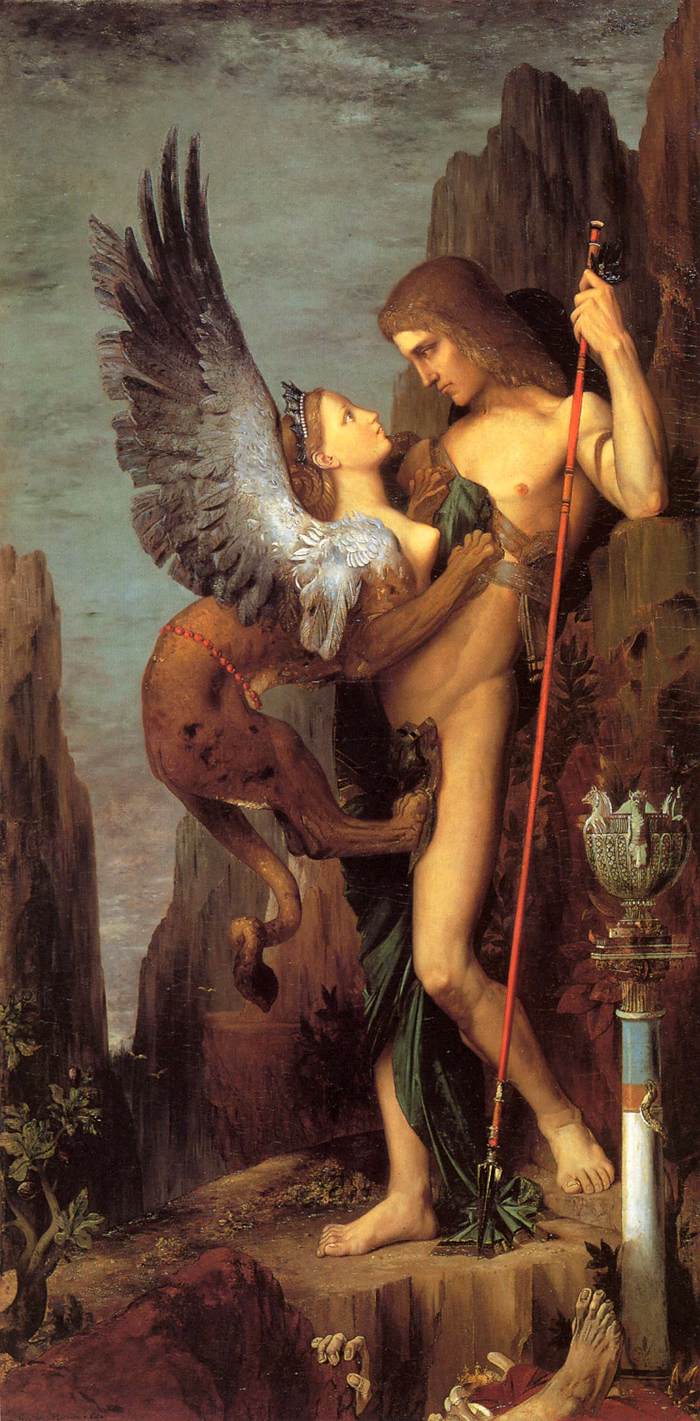 |
| Gustave Moreau, Oedipus and the Sphinx, 1864. |
The book’s cover describes it as a biography, but more accurately it should have been titled “an account of Mme. Blavatsky in relation to the esoteric tradition,” as Lachman’s scope is wide enough to place her in the context of modern esotericism. Here his other biographies serve him well, Swedenborg, Steiner, Ouspensky, Jung, even Hermes Trismegistus, are cited to give relevance to Blavatsky’s experiences. But the book fails as a biography, for in spite of giving so much attention to the details in her life we are still no closer to understanding the mysterious Mme. Blavatsky, who is made a little more mysterious by this book.
Part of the problem lies in Lachman’s trying to accommodate all versions of her story, though the pros win out over the cons. Blavatsky’s first book, Isis Unveiled, gets a fair amount of attention but The Secret Doctrine that she is more famous for gets a two page digest. There is nothing on her voluminous magazine output or her Russian fiction, so that the reader is left not really knowing what she stood for.
Perhaps this is due to an undue reliance on second hand sources, for the book offers no new research material. His last chapter, “The Masters Revealed?”, references Paul Johnson’s 1994 book of the same title where Johnson concludes that Blavatsky’s Masters were a front for real Indian insurrectionists of her time. As interesting as this theory is, Johnson also gives no motive for Blavatsky’s actions. What caused Mme. Blavatsky to spend so many laborious days in this supposed expenditure which her writing and editing was a cover for? Until that is answered these speculations must remain in the realm of theory.
Lachman writes that Johnson’s book, “perhaps more than anything else, is responsible for a kind of ‘Blavatsky revival’ taking place on the Internet, with scholars, Theosophists, and simply interested readers…” But the late Dr. Nicholas Goodrick-Clarke (an academic whom Lachman quotes approvingly) has more accurately pinpointed the “ Blavatsky revival” to the founding by Leslie Price of the journal Theosophical History, which in those pre-Internet days became the main means of exchange for a budding generation of theosophical scholars. This was in 1985 well before any version of Johnson’s book (Goodrick-Clarke, Theosophical History, Vol. XI July 2005, p. 23).
Madame Blavatsky: The Mother of Modern Spirituality offers a useful retelling of a story that needs to be told, especially coming from Mr. Lachman who has written so extensively on the subject of the modern esoteric. It serves as a welcome continuation of Joscelyn Godwin’s earlier book The Theosophical Enlightenment, taking up where the latter leaves off. Gary Lachman is now working on a biography of the British magician Aleister Crowley.
No comments:
Post a Comment
All comments to this blog are subject to moderation, and may appear at our sole discretion, if found to add relevance to the site's topics.